The 7 Best CGM Programs in 2025 (Dietitian Reviewed)
.webp)
Key Takeways
Finding the best continuous glucose monitoring option requires matching the right tools to your specific goals. While many programs offer a raw view of data, Nutrisense stands out by pairing biosensors with 1:1 guidance from registered dietitians. This approach helps you interpret your body’s unique responses to build sustainable habits.
- Knowing your glycemic variability is an important factor for improving long-term metabolic health.
- Take our quiz to discover which Nutrisense program is the right fit for your personal wellness goals.
- The Nutrisense program is available within the United States, and the dietitian coaching may be covered by insurance for eligible users.
- Biosensors provide a 24/7 picture of your glucose trends by measuring levels in the interstitial fluid.
Finding the best continuous glucose monitoring option requires matching the right tools to your specific goals. While many programs offer a raw view of data, Nutrisense stands out by pairing biosensors with 1:1 guidance from registered dietitians. This approach helps you interpret your body’s unique responses to build sustainable habits.
- Knowing your glycemic variability is an important factor for improving long-term metabolic health.
- Take our quiz to discover which Nutrisense program is the right fit for your personal wellness goals.
- The Nutrisense program is available within the United States, and the dietitian coaching may be covered by insurance for eligible users.
- Biosensors provide a 24/7 picture of your glucose trends by measuring levels in the interstitial fluid.
If you’re in the market for a continuous glucose monitor (CGM) or glucose biosensor, you may be unsure of how to go about getting your hands on one. There are a variety of different programs out there, and each has its own features and uses.
As a first time buyer, it may be challenging and overwhelming to figure out what type of glucose monitoring program is right for you and your well-being. But, if you’re ready to explore your glucose levels and excited to learn how to build healthier lifestyle habits, you’ve come to the right place. In this article, we’ll break down the benefits and drawbacks of some of the top CGM programs on the market, and share tips to help you determine which program is the right option for you.
What is a CGM and who can use it?
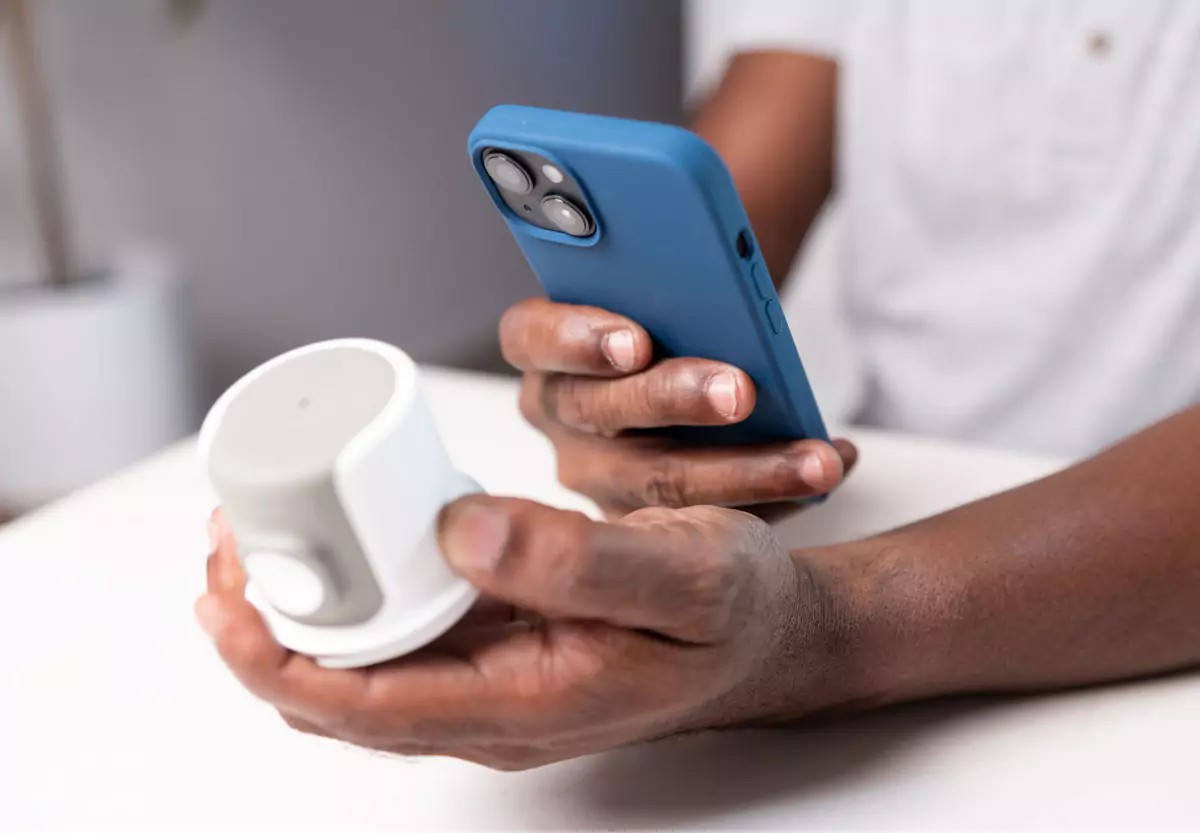
A continuous glucose monitor is a device that measures your glucose levels as you eat, sleep, and go about your day. This sensor is placed on the back of your arm, and measures interstitial glucose through a small fiber that is painlessly inserted under your skin.
With a CGM, you’re able to see how your glucose fluctuates throughout the day, which makes it unique compared to other methods of measuring glucose levels, such as a finger prick. The insights provided by these types of devices can be used to support behavioral changes for any type of wellness goal.
Who can use it
Like many inventions, the use of CGMs has evolved over the years. Nowadays, anyone who wants to observe their glucose levels in response to different foods, activity, and even stress can do so through a CGM or glucose biosensor provider such as Nutrisense, Levels, Signos, January, or Veri.
Why guidance helps
When getting started, having expert guidance from a credentialed dietitian or nutritionist can help you navigate your data and identify trends so that you can make the most of your program, especially if you opt for a shorter plan. Whether you're looking for the best CGM for weight loss, improving fitness, or any other goal, continuous glucose monitors and glucose biosensors can provide useful insights to support long-term change.
If you’re looking to build sustainable habits down the road, you may want to choose a longer term plan. A six or 12 month program can help you understand your glucose, identify trends, and form lasting habits over time.
Many of the CGM programs we’ll detail below offer discounted rates for longer commitments. So, take your time to mull it over and decide what your health goals are and what you’re looking to get out of a CGM program.
Feeling stuck in the research phase?
You have three browser tabs open: one for Levels, one for Signos, and now this one. They all offer a sensor, but the details are a blur. One seems focused only on weight loss, another on AI predictions. It's hard to tell if you'll get real support or just data.
You have tried programs before that did not offer personalized guidance. You want more than numbers on a screen. You want to know what they mean for you and what to do next. You’re ready for a program that helps you act on your data day-to-day, not start over each Monday.
Start with your goal, then use the selections below to find your fit.
{{rich-text-cta-3="/style-guide"}}
Which glucose monitoring programs stand out?
A variety of different CGM programs have emerged to help provide more insight into your metabolic health to help anyone take a more proactive role in keeping an eye on their glucose levels.
- Best for Expert Nutritionist Insights and Guidance: Nutrisense
- Best for Weight Loss Insights: Signos
- Best for Food Tracking: Levels
- Best for Simple Glucose Insights: Veri
- Best for AI Glucose Tracking: January
- Best for Athletes: Supersapiens
- Best for Predictive Insights: ZOE
How do top programs compare by features?
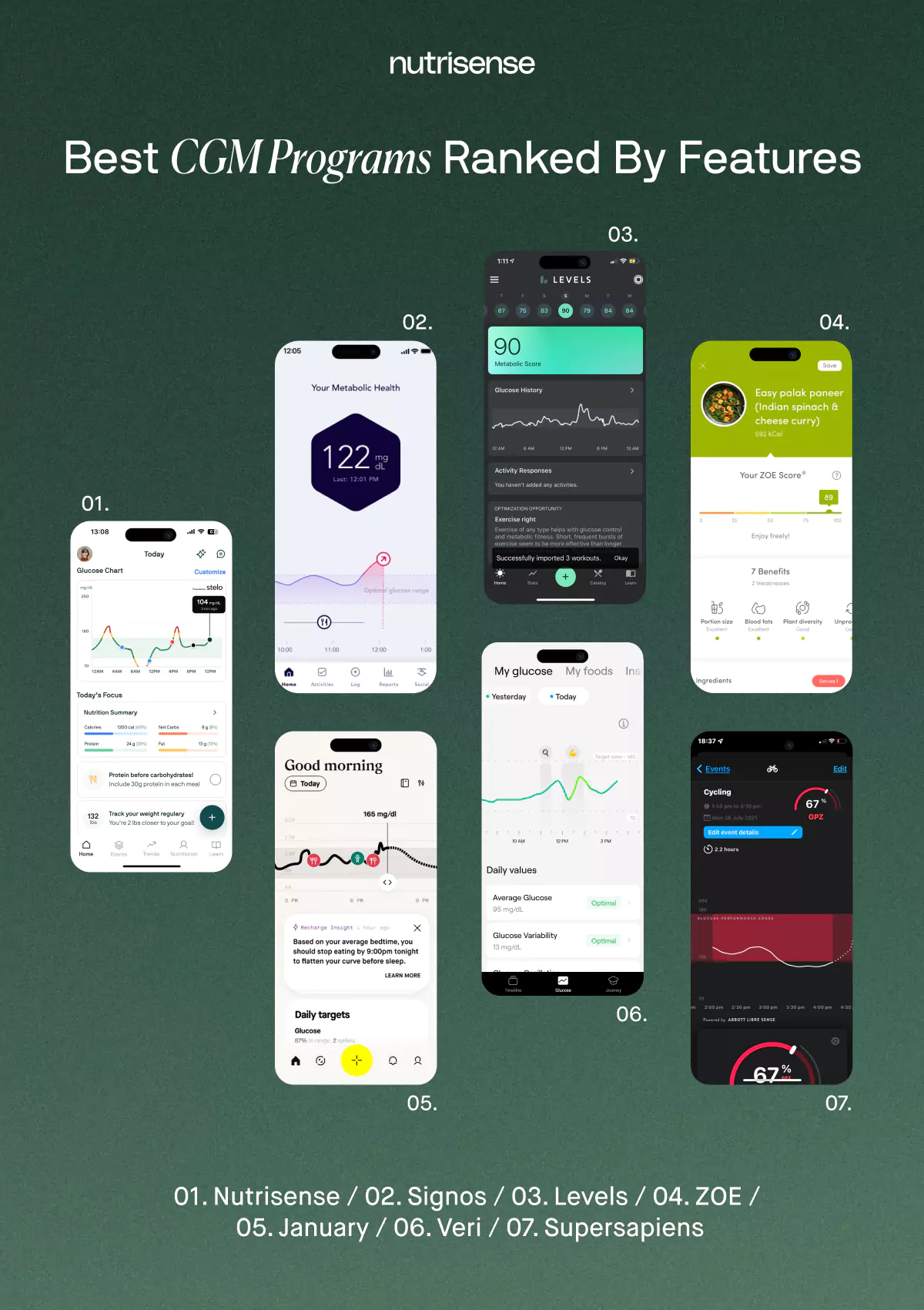
To figure out which CGM program is the right choice for you, we’ll break down each program by features to help you get the most bang for your buck. Here’s what you need to know about each of the five best CGM programs on the market in 2025.
1) Nutrisense

Nutrisense's mission is to help give people the tools and support they need to maintain healthy lifestyle habits through various products and services. They stand out for the personalization they offer through all their products, with a team of registered dietitians and nutritionists who are all glucose experts working 1:1 with members via support options like insurance-covered video calls.
Nutrisense Programs stand apart from the rest on this list because they not only provide those who need them with access to glucose biosensors, but they also have a great companion app to help you monitor and track not just your glucose levels, but also trends.
With this, members gain valuable insights into their metabolic health and support for a range of unique health goals.
In addition to providing access to glucose biosensors, you can also connect your own compatible CGM devices to the Nutrisense app with a Nutrisense App membership. As a Nutrisense member, you also have the option to work with a glucose expert through options like 1:1 insurance-covered video calls, helping you make the most of your experience.
Benefits of Nutrisense
One of Nutrisense's standout features is the personalized support from an experienced and credentialed team of glucose-certified nutritionists and dietitians. Members can pick from support options to work with a personal expert to interpret their glucose data, understand their body's unique responses, and build healthier habits. This personalized guidance is invaluable for optimizing their diet, exercise, and overall lifestyle, particularly if they've hit a plateau or struggle with consistency.
Each registered dietitian and nutritionist at Nutrisense has a range of specialties, including weight loss, prediabetes, sports nutrition, and more. This approach, tailored to various unique wellness goals, ensured a customized experience for all types of users.
Other benefits include:
- Flexible program and sensor options: Choose from three-month, six-month, or one-year plans. You can get the available glucose biosensors or pick a plan that allows you to bring your own sensor.
- Comprehensive mobile app: The Nutrisense App not only tracks glucose data but also allows you to log diet, exercise, and sleep, offering a holistic view of your health.
- Community support: You'll have access to a private Facebook group with like-minded individuals, webinars, and events for added support and learning.
- Wearables and integration capabilities: You can sync data with other wearables and third-party services like Oura Ring, Garmin, Apple Health, and others.
Why connect your own sensor to Nutrisense?
If you already have a CGM, either through your doctor or with an over-the-counter device, Nutrisense provides the flexibility to connect your own sensor to the Nutrisense App. This allows you to use your preferred device while still benefiting from Nutrisense's detailed data analysis and nutritionist support. By doing so, they can gain a deeper understanding of their glucose data and make informed decisions about their health.
Cons of Nutrisense
Currently, Nutrisense services are only available in the United States.
Pricing
Nutrisense offers various plans of varying lengths. You can find more information about the cost of Nutrisense here.
2) Signos
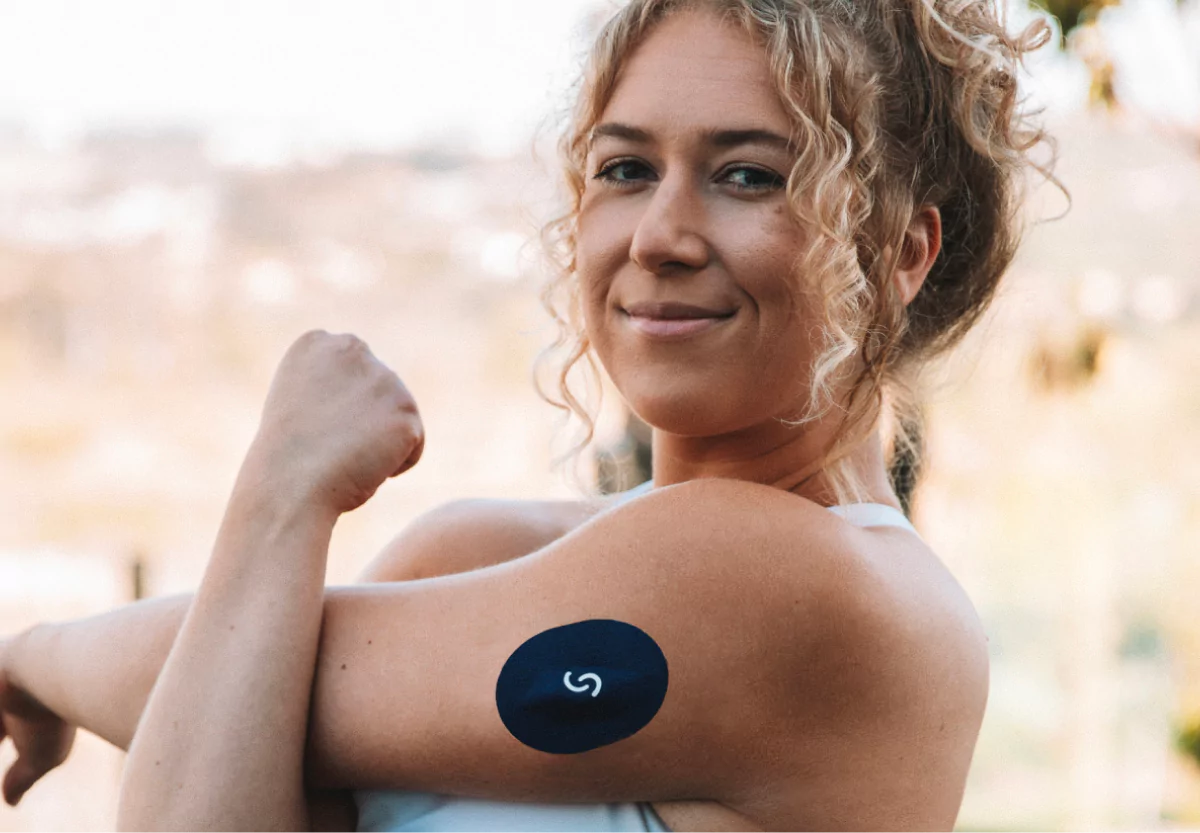
Signos is a company that provides access to continuous glucose monitors and specifically focuses on individuals who want to lose weight. They use AI technology to provide dietary and exercise recommendations to its users through their mobile app.
Benefits of Signos
One of the benefits of using Signos is its notification feature, which helps users catch important information on glucose. For example, when your glucose spikes, the Signos app will alert you with a text bubble and prompt you to click through and find ways to reduce glucose levels.
Its interface helps beginners have an easier time digesting the information. Signos offers two different plans: a 3-month plan and a 6-month plan, each including 2 biosensors per month and app access.
Cons of Signos
While this program can be helpful for weight loss, one of the downsides is that people with other wellness goals, or who want a holistic and nuanced look into their health that goes beyond the scale, may not find this program as useful. This is because much of the content is geared towards weight loss and fitness.
When comparing Nutrisense vs. Signos, Signos has limited nutritionist support that may not include customized plans, guidance, and motivational coaching. It also works exclusively with Dexcom Stelo and does not support bring-your-own sensors or a software-only plan.
Pricing
Plans start at $129–$199 a month. Each plan includes two Dexcom Stelo biosensors per month and full access to the AI app for continuous glucose insights.
3) Levels
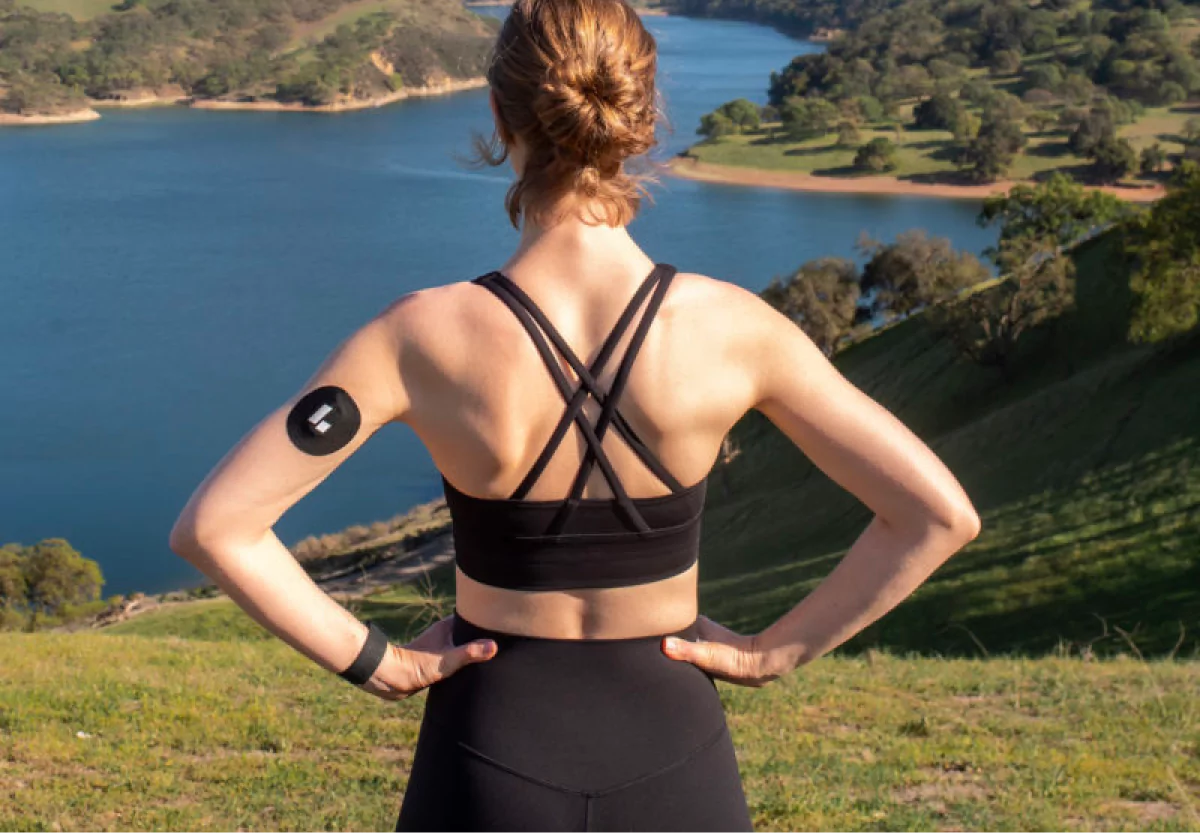
Levels is a health and fitness company that helps users see how food affects their health with personalized insights. Their CGM program provides users with the monitor itself, and an app to track health data from the device.
Here are some of the benefits and drawbacks of the Levels program.
Benefits of Levels
Levels works with both the Dexcom G6 and Freestyle Libre glucose monitors, which means that users have the option to connect their data to their app using bluetooth or manual scanning, depending on their CGM.
Members can access a nutritionist marketplace for added support from qualified nutritionists. Like other programs, Levels offers short and long term plan options. Levels also offers access to community events and has a Facebook group for additional support for members.
Cons of Levels
The nutritionist add-on provided by Levels is not included in base membership pricing. Pricing varies by insurance and location, with self-pay options available.
Here are some other cons to note regarding Levels vs. Nutrisense:
- App setup and integration can be complicated, as there are two apps required to activate your CGM and track your glucose data.
- Members must purchase a yearly subscription even if only planning to use a CGM for one month.
Pricing
The Levels program offers three membership tiers, starting at $288 billed annually.
4) ZOE
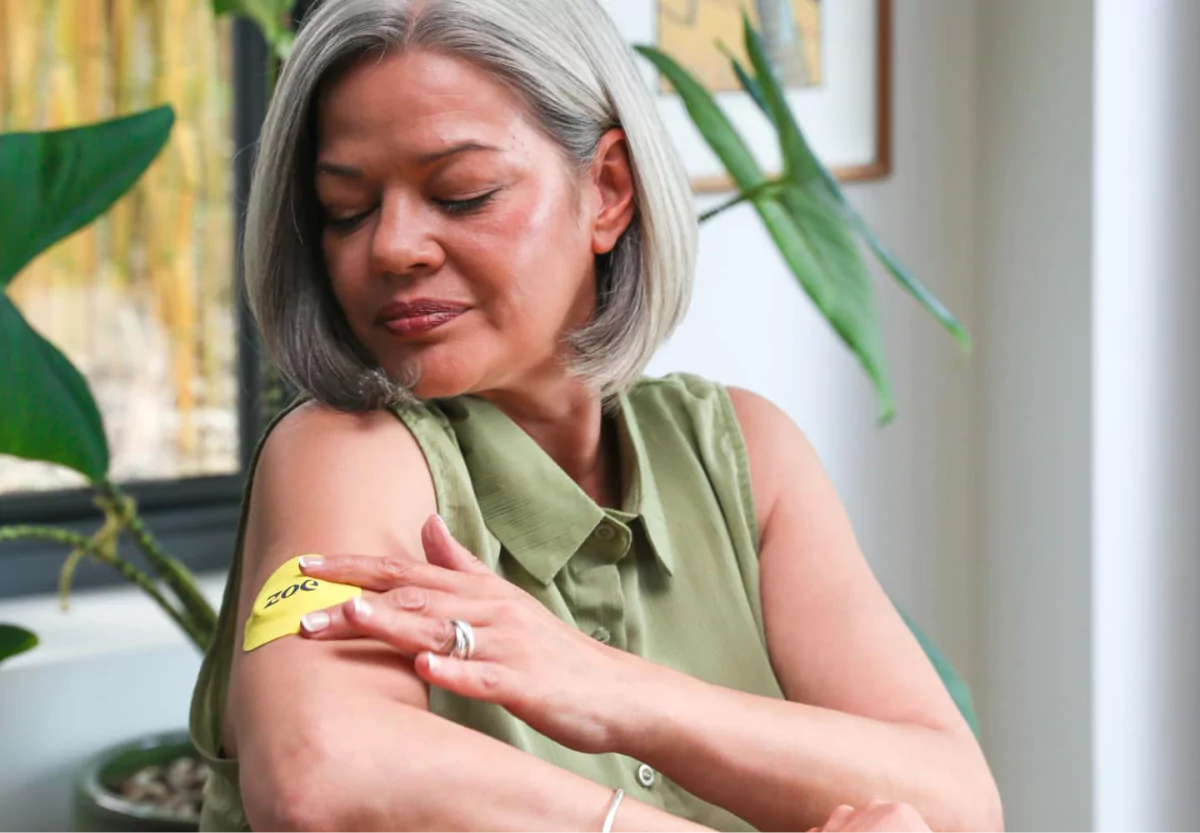
ZOE is a health science company that focuses on personalized nutrition and health optimization. Using a data-driven approach, ZOE analyzes various factors such as dietary habits, gut microbiome composition, and blood biomarkers to offer tailored recommendations for optimizing metabolic health and well-being.
ZOE aims to empower individuals to make informed decisions about their diet and lifestyle based on your unique physiological responses.
Benefits of ZOE
ZOE can offer a host of advantages to people seeking personalized health insights. By analyzing a range of factors, ZOE provides users with a holistic understanding of their metabolic health.
Users of ZOE will start by completing a series of tests, including using a CGM, to understand the state of their health before learning how to create healthier habits. This approach can help you make informed decisions about your nutrition and lifestyle, tailoring recommendations to their unique physiological responses.
Cons of ZOE
While ZOE offers valuable personalized insights, there are certain considerations to bear in mind. ZOE’s program uses a prediction of your response to different types of foods to make dietary recommendations, meaning that some feedback may be generalized and may not adequately support your unique goals.
When comparing Nutrisense to ZOE, here are some notable considerations:
- You’ll need to consent to being part of ZOE’s clinical study and meet certain criteria in order to gain access to CGMs.
- ZOE’s health coaches only need to have received a Bachelor’s degree in nutrition science, rather than the rigorous qualifications required of Nutrisense nutritionists.
Pricing
ZOE’s classic test kits are unavailable while they prepare a new testing experience and app designed to guide users.
5) January
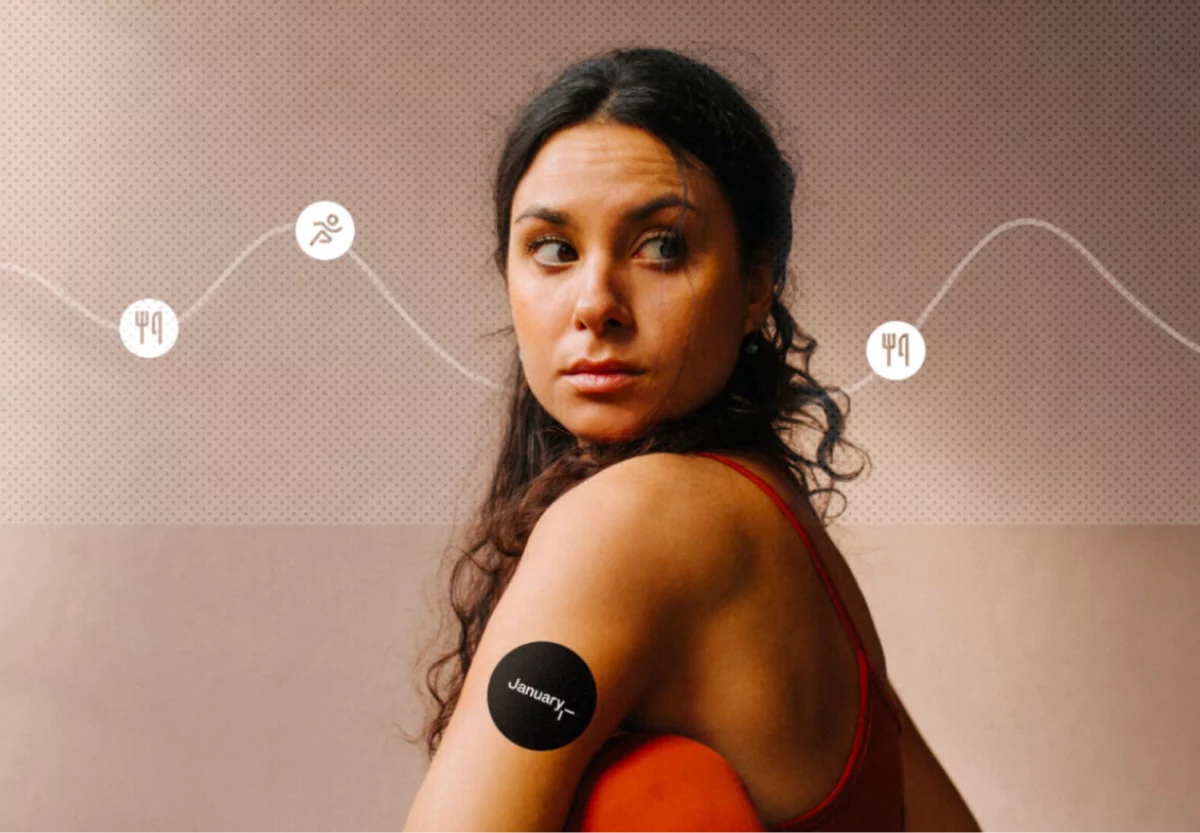
January is another CGM program that provides users with glucose insights, predictions, and estimates based on your daily habits. In this program, you’ll wear a CGM for the first 14 days as the AI technology gathers your body’s data.
January then uses AI technology to make personalized metabolic health recommendations based on your diet, exercise, and glucose levels.
Benefits of January
January’s program collects all of your body’s data: diet, exercise habits, sleep patterns, heart rate data, and more to estimate your glucose levels without needing to continually wear a CGM device. Users of this program will receive daily reports and feedback showing them unique insights about how the foods they eat may impact their glucose levels.
January offers a monthly membership and an annual membership that its members can choose from. The AI health coach provides recommendations to help you lower potential glucose spikes.
Cons of January
January uses AI technology to recommend metabolic health insights, and while this can be beneficial in certain ways, this technology is still being perfected and may not be right for everyone. When comparing Nutrisense vs. January, other cons include:
- The January program does not include nutritionist support in its programs, but relies on AI instead.
- Like other CGM programs, you will need to download two apps to activate and sync your CGM with the January app.
- It’s also necessary to use an activity tracker such as an Oura Ring or an Apple watch for at least two weeks while January collects your data.
Pricing
You can start with a 7-day free trial when you download the app and create your account. After the first week, you’ll have the option to keep your access with a paid plan. Premium features start at $9.99 a month or $59.99 a year.
How to read your glucose data
To get the most from any program, focus on patterns measured in interstitial fluid rather than single readings. These metrics help you compare options and make day-to-day decisions with confidence.
- Glycemic variability: How much your glucose changes across the day and from day to day. Aim for consistent, modest swings across weeks.
- Time in Tight Range (TITR): The percent of readings inside a personal range you set with a coach. This keeps attention on progress instead of chasing perfect numbers.
- Post-meal response: The size of the rise after a meal and how quickly you return to your usual baseline within a couple of hours. Compare meals, timing, and portion sizes to see what works for you.
- Fasting and overnight patterns: Look at wake-up and overnight trends to spot patterns related to late meals, alcohol, stress, or sleep.
- Personal variability: Responses differ from person to person. Factors like genetics, gut microbiome, activity, and menstrual cycle phase may play a part, so expect your numbers to be personal.
The Nutrisense App visualizes these metrics, and a glucose-certified dietitian can help you set a starting range, plan simple experiments, and translate patterns into practical steps for meals, movement, and sleep.
Which glucose monitoring program is right for you?
Everyone has unique wellness needs, motivations, and lifestyle goals when using a glucose monitoring device like a CGM or a glucose biosensor. If you want to build long-term habits and set yourself up for success with the help of expert nutritionist guidance, Nutrisense may be right for you.
Nutrisense fit
The Nutrisense program is a great option for those who want to take ownership of their habits and well-being. Through Nutrisense’s unique features, nutritionist support, and intuitive mobile app, members can access their body’s data and use it to make lasting change.
Member story
Don’t take it from us! Here’s what one of our members, Jennifer Brumit, had to say about our program:
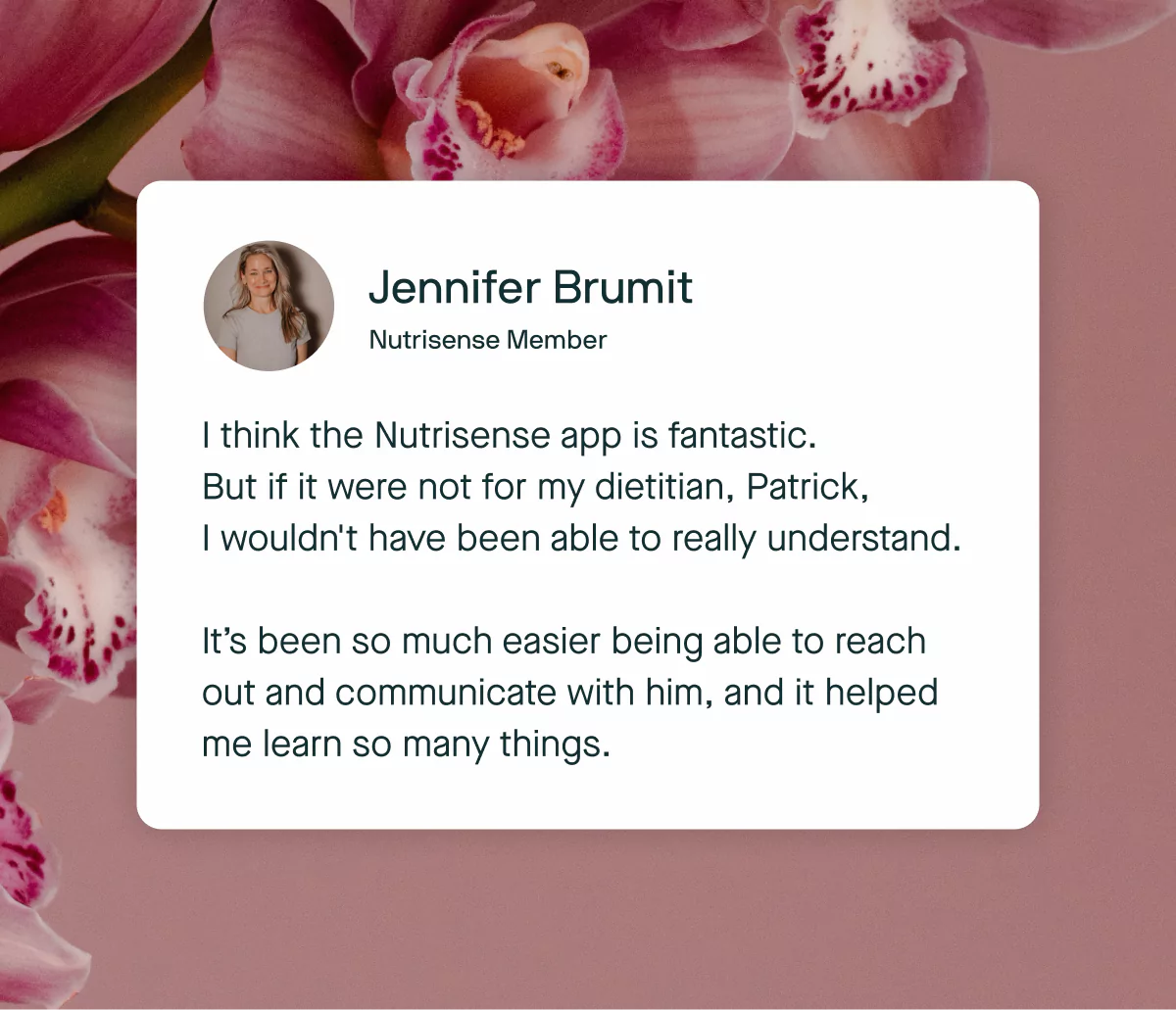
“I sort of knew what it all meant, and I think the Nutrisense app is fantastic. But if it were not for my dietitian, Patrick, I wouldn't have been able to really understand. I think you can look at the app and see things and think, 'Here's this number.' But [my dietitian] has been so great behind the scenes to say, "Hey, look at these numbers," and "This is what it all really means." So now, understanding all that, it’s almost like reading the fine print. It’s been so much easier being able to reach out and communicate with him, and it helped me learn so many things.”
Find the right Nutrisense programto turn insight into progress.
How to go beyond glucose data with Nutrisense
Your glucose can significantly impact how your body feels and functions. That’s why stable levels are an important factor in supporting overall wellbeing. But viewing glucose isn't enough. With Nutrisense, you’ll be able to learn how to use your body's data to make informed lifestyle choices that support healthy living.
Work with a dietitian
Sign up to access insurance-covered video calls with a glucose expert: a personal registered dietitian or certified nutritionist who will help tailor your lifestyle and diet to your goals.
Track with the app
With the Nutrisense Program, you can monitor your glucose with health tech like glucose biosensors and continuous glucose monitor (CGM)s, and analyze the trends over time with the Nutrisense App. This will help you make the most informed choices about the foods you consume and their impact on your health.
Get started
Ready to take the first step? Start with our quiz to find the right Nutrisense program to help you take control.
FAQs about CGMs and Nutrisense plans
Q1. If I already have a CGM, can I use it with the Nutrisense app?
A1. Yes. With a Nutrisense App membership, you can connect select compatible sensors and access app analytics plus nutritionist support options. Pricing is $39 per month or $199 per year. See the Bring Your Own Sensor page for current compatibility details and setup steps.
Source: Bring Your Own Sensor
Q2. How can I keep a sensor secure during workouts, swimming, or hot weather?
A2. Use waterproof covers and good skin prep to reduce lift and keep sensors secure through activity, showers, and swims. Choose breathable patches sized for your sensor and replace them if the edges loosen.
Source: Swimming with a CGM
Q3. Are dietitian video calls covered by insurance, and how do I check?
A3. Many members use insurance for 1:1 video calls with registered dietitians. Nutrisense accepts plans from major insurers, often with $0 out-of-pocket costs. You can also self-pay for sessions if preferred.
Source: Nutritionist video calls
Go Beyond Glucose Data with Nutrisense
Your glucose can significantly impact how your body feels and functions. That’s why stable levels are an important factor in supporting overall wellbeing. But viewing glucose isn't enough. Nutrisense, you’ll be able to learn how to use your body's data to make informed lifestyle choices that support healthy living.
One-to-one coaching
Sign up to access insurance-covered video calls to work with a glucose expert: a personal registered dietitian or certified nutritionist who will help tailor your lifestyle and diet to your goals.
Monitor and measure what matters
With the Nutrisense CGM Program, you can monitor your glucose with health tech like glucose biosensors and continuous glucose monitor (CGM)s, and analyze the trends over time with the Nutrisense App. This will help you make the most informed choices about the foods you consume and their impact on your health.
Find your best fit
Ready to take the first step? Start with our quiz to find the right Nutrisense program to help you take control.
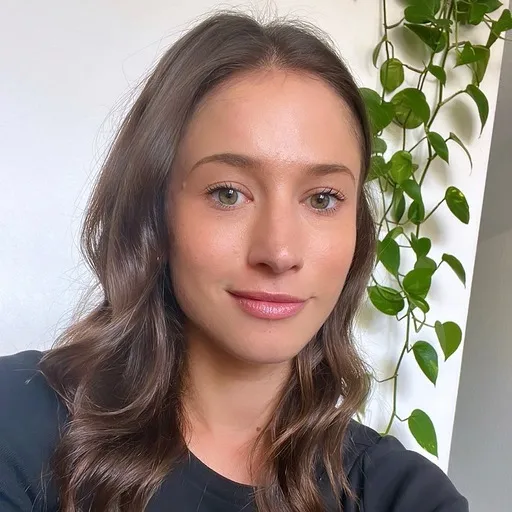
Liz has a Master of Science degree in Clinical Nutrition and Integrative Health and is a board-certified nutrition specialist (CNS) and a licensed dietitian nutritionist (LDN). As a nutritionist, Liz has educated and counseled 100s of clients in areas such as weight loss, hormonal imbalances, and gastrointestinal diseases.


.webp)
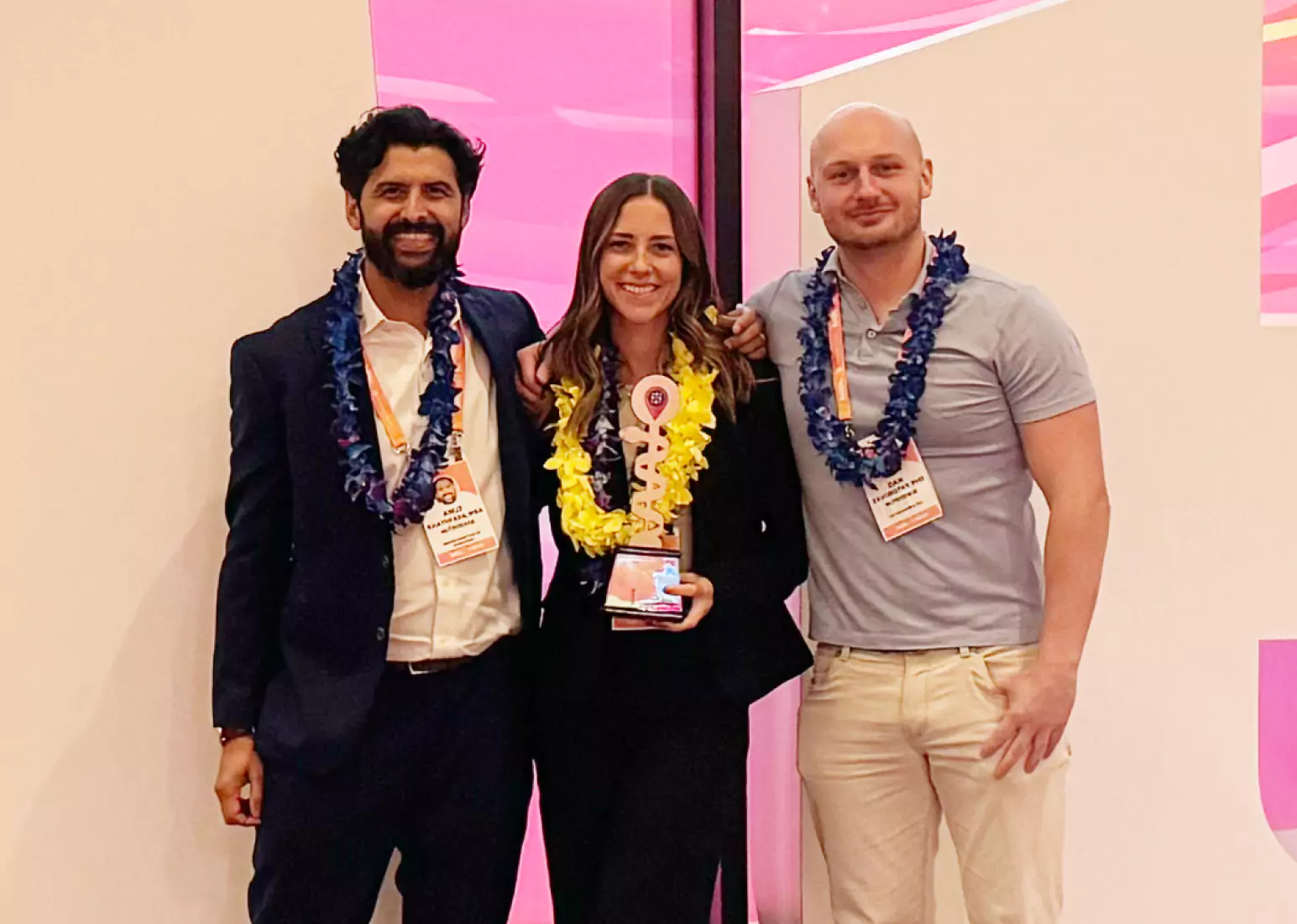
.jpeg)